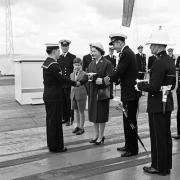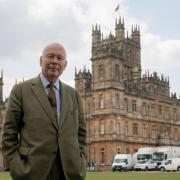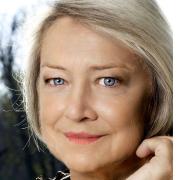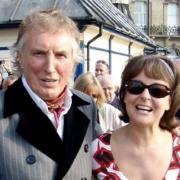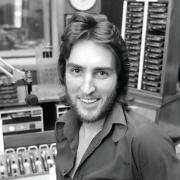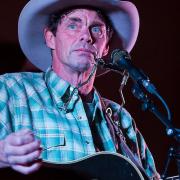Serving as a teenage ARP warden in wartime Poole helped launch sit-com king, David Croft’s career, as Jeremy Miles discovers
As an Air Raid Precautions warden during the Second World War, David Croft may have been telling people to ‘put that light out’, but the celebrated writer and producer says he was nothing like the bullish Bill Pertwee character in Dad’s Army. “I was so polite,” recalls the 87-year-old Croft. “I’d timidly knock on people’s doors and ask them terribly respectfully if they’d mind making sure their curtains were properly drawn.”
So, one part Chief Air Raid Warden Hodges and three parts Sergeant Wilson then. Whatever the formula, from the late sixties to the early nineties, Croft’s input as a creator of classic comedy is extraordinary. Over a 25-year period he created some of our most iconic British TV comedies including Dad’s Army, It Ain’t Half Hot Mum and Hi-diHi!,co-written with Jimmy Perry, and Are You Being Served?and ’Allo ’Allo with Jeremy Lloyd.
Though they were written decades ago almost all of the Croft and Perry shows from that era are still repeated, proving their timeless appeal. David Croft is clearly delighted. Yet, in a typically self-deprecating way, he says he feels he’s simply been a lucky man. “I’m very fortunate,” he tells me. “I just happened to be in the right place at the right time.”
It is true that in many ways he’s lived a charmed life. He was even born in that most illustrious of locations, Sandbanks, though when baby Croft arrived in 1922, it was far from the millionaire’s paradise it is today. The modest bungalow in which he spent his formative years was just a few doors away from Poole’s prestigious Royal Motor Yacht Club, an institution that would become legendary, not least for its famous Commodore, Colonel Walter Bersey – a man so obsessed with class, position and protocol that stories of his bigotry are still told today.
It is claimed that when a drowning man was rescued from the club jetty, he famously tried to prevent the barely conscious victim from being taken into the club house because he wasn’t a member. This, of course, is exactly the kind of incident that would provide rich pickings for David Croft’s comedy writing.
He recalls his early life as being full of simple pleasures, though his memories of Sharcroft, the Sandbanks bungalow named after his father, the actor Reginald Sharland and his mother, music hall singer Annie Croft, are scant. His parents separated and later divorced. The little house was sold when Croft was still a youngster and he was packed off to prep school in Swanage.
“It’s strange when you see what Sandbanks has become today,” he says. “We never thought of it as being particularly special. It was just an ordinary middle-class area. Heaven knows what our house would be worth now. I think my father sold it for about £600 in 1936.”
Location alone would push the house – later renamed Laguna – into the £1 million plus bracket, but it’s an academic question. Croft is fairly certain that the bungalow disappeared a long time ago. “I did go to see if I could find it a couple of years back but with no luck, maybe I looked in the wrong place? I’m pretty sure it’s been demolished.”
Though he now lives in Suffolk, David Croft still returns to Dorset regularly and says he still regards it as his spiritual home. “My mother kept a flat on Sandbanks for many years, right out on the isthmus, with the sea on one side and the harbour on the other. I have very happy memories and still visit quite often. There’s something about it that always feels like home to me.”
He also has happy memories of his time at Durlston Court School. He was offered a place, he says, because the Headmaster had served alongside his father during the First World War. “I believe they shared a tent,” says Croft. “That sort of determined where I was going.” “I had a very good time at school though I do remember it being rather cold,” he recalls. “There were lots of sporting events and we used to go for long walks through the Dorset countryside every Sunday. I remember beautiful scenery and marvellous butterflies.”
Crucially there were also stage shows which the young David loved. At 13 he left Durlston to complete his education at Rugby School. Four years later, war was declared and he returned to Dorset, volunteering as a teenage ARP warden in Upper Parkstone, Poole, where his grandmother lived.
Within a few months he was old enough to enlist, and he served as a young officer in the Dorset Regiment and the Royal Artillery in North Africa, India and Malaya. Army service would prove the making of Croft. He left the forces with the rank of Major and with enough material to feed a dozen best-selling comedy shows.
Ironically, the war also spelt the end of his father’s theatrical career. Reginald Sharland had gone to America to make his fortune and for a while enjoyed huge success with the wartime radio show The Honourable Archie. Audiences particularly liked his Japanese manservant... until Pearl Harbour. “It came off overnight,” says Croft ruefully.
In contrast, Croft’s own career thrived. After he left the Army he worked producing entertainment for the new holiday camps being established by Billy Butlin. Croft soaked it all up; all these experiences providing even more material for his future writing career. By the time he ran into co-writer Jimmy Perry – a man with remarkably similar experiences – they could hardly fail.
He talks warmly of the ’60s and ’70s when TV offered him so many opportunities. “Of course we didn’t realise at the time but it really was a golden era and I wrote about a third of it!”
Indeed, today, Dad’s Army and ’Allo ’Allo not only enjoy regular re-runs on the TV, they’ve also been turned into successful touring stage plays. Actress Vicki Michelle, who starred in both the original TV series of ’Allo ’Allo and the recent stage production, knows another reason why Croft’s work is so enduring. “I remember when I first auditioned for the show back in the ’80s. I couldn’t stop laughing. David Croft and Jeremy Lloyd are brilliant writers,” she says. “Their work appeals to successive generations partly because it’s still screened on television but also because they’re real family shows. A nineyear-old can watch them with their nan. You don’t get much like that on telly these days.”
David Croft’s formative years in Dorset, with his spell as an ARP warden in Poole and his subsequent experiences in the army and working in entertainments at Butlin’s holiday camp, shine out like a beacon in the blackout in his scripts for Dad’s Army, It Ain’t Half Hot Mumand Hi-di-Hi.Without doubt he has provided us with some of the greatest British comedy classics of our time and Croft is thrilled by their continuing appeal. “What’s really gratifying is that generation after generation of new viewers absolutely love them.”
And long may it continue.
David Croft 1922-2011. This interview is from the February 2010 edition of Dorset Magazine.






